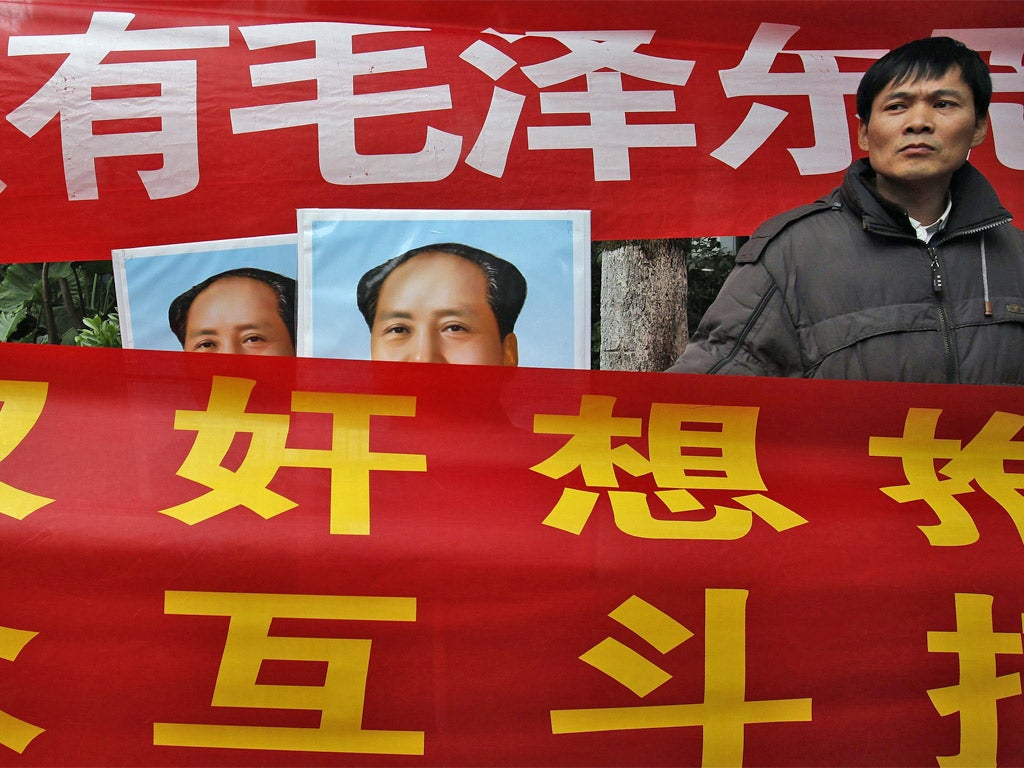Duel in the newsroom... How paper took on Chinese propaganda chief - and lost
Insider tells how Communist official demanded editorial be printed

Your support helps us to tell the story
From reproductive rights to climate change to Big Tech, The Independent is on the ground when the story is developing. Whether it's investigating the financials of Elon Musk's pro-Trump PAC or producing our latest documentary, 'The A Word', which shines a light on the American women fighting for reproductive rights, we know how important it is to parse out the facts from the messaging.
At such a critical moment in US history, we need reporters on the ground. Your donation allows us to keep sending journalists to speak to both sides of the story.
The Independent is trusted by Americans across the entire political spectrum. And unlike many other quality news outlets, we choose not to lock Americans out of our reporting and analysis with paywalls. We believe quality journalism should be available to everyone, paid for by those who can afford it.
Your support makes all the difference.A journalist from the Beijing News, one of the newspapers at the centre of a censorship row with the Chinese government, has claimed that a state propaganda official marched into the paper's offices on Tuesday night and demanded it print an article that criticised its sister paper over a clash with Communist Party censors.
Staff from Southern Weekly, a Guangdong-based paper known for its outspoken coverage, went on strike earlier this week after an editorial in the paper calling for reform was changed. Staff then demanded the resignation of the southern province's propaganda chief.
The unnamed employee's extraordinary account claims that Yan Liqiang, the deputy director of the Beijing Municipal Party Committee Propaganda Department, arrived at the Beijing News offices around 8pm and ordered the paper to reprint an editorial first published in the pro-nationalist tabloid Global Times, which stated that supporters of Southern Weekly's stance on censorship were backed by foreign-based human rights activists.
The paper's top leaders initially refused to do so, and while the argument continued in a fourth-floor conference room editorial staff rushed to sign off the pages. "The aim was to sign off on everything by 12.30am," the journalist said. "A minute later and it would all end up in disgrace. We heard that [publisher] Dai Zigeng and [editor-in-chief] Wang Yuechun said if the editorial was reprinted, they would resign.
"A little after midnight, staff members who had gone home began to pour back into the office to see how the situation would pan out. We all felt happy and proud that our leaders had decided not to reprint the editorial. We thought if we could only stand firm for a couple more hours, the situation would go away."
But their optimism was short-lived. Mr Dai and Ms Yuechun called their staff into a room and asked for their opinions on the matter. "We discussed the worst-case scenario if we refused to publish it – maybe we wouldn't be able to put out the paper at all," the journalist said.
"This was a result [the propaganda department] would be willing to see happen. When everyone heard this, the room fell silent." The journalist's claims, reported online by the Wall Street Journal, reveal that the presses were stopped at 1.30am. Today the paper published the editorial, albeit in an abridged version.
"It's not enough that the Beijing News is subject to daily censorship notices and inspections? It now appears they can kill a news organisation as easily as they can kill an ant," the journalist said. Reports that Mr Dai had resigned over the incident were denied by staff at the paper, who said he was working as usual today.
Both protests have stoked public debate about freedom of speech in China but online reports of the Beijing News showdown have already been removed from the internet in China. A separate Global Times editorial published today read "freedom of the press must have limits".
The incident is the first major challenged to the new Communist Party leader Xi Jinping, who is expected to take over as President in March. Today the Southern Weekly strike was apparently resolved, with reports that the majority of journalists would be able return to work unpunished following an agreement reached between authorities and the paper.
"[The protests] shows that both journalists and news consumers in China are utterly fed up with censorship," said Madeline Earp, senior researcher for Committee to Protect Journalists' Asia programme. "The staff are extremely vulnerable. It is up to the rest of the world to monitor the situation."
Join our commenting forum
Join thought-provoking conversations, follow other Independent readers and see their replies
Comments